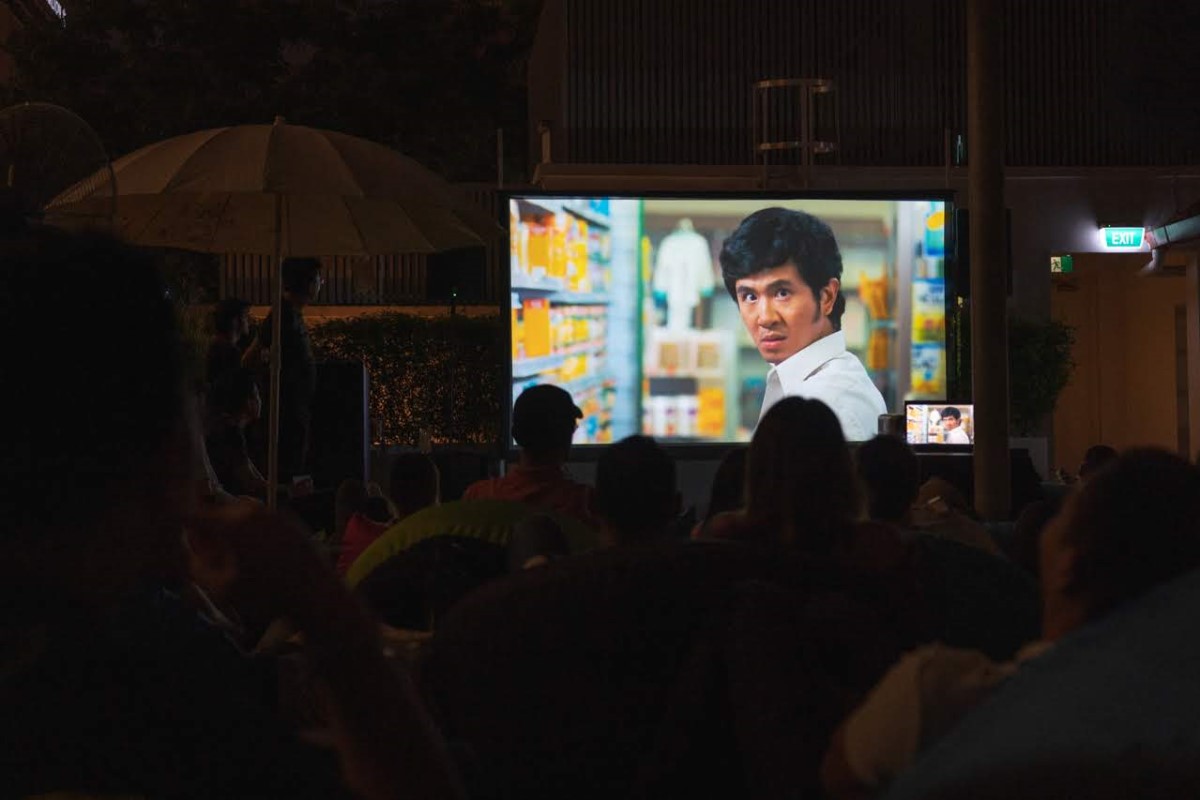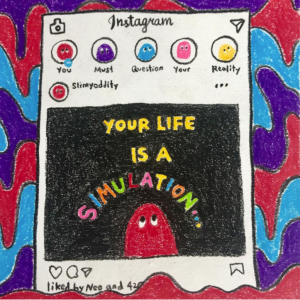Top image: Zachary Tang/Rice Media
We know the start of the NOC saga and the end of it.
The three-week public fiasco in October almost felt like a thriller, with each turning point bolstering its ranks a tad more each time. Interesting or predictable as viewers’ comments may be, there’s one thing unique to this movie—the echo of audiences’ voices as the plot progresses. It’s almost like a Black Magic: Bandersnatch inspired flick.
Still, one possibly culpable group remains unscathed and unexplained—the audience. As they fanned the fires with their fury, sending the fiasco in a raging spiral, are they the actual third party in this affair?
The forgotten “homewrecker”
It’s 2021, and we’re aware of the futility of social media activism—a flashy concept that often presents an illusion of control. While it holds the potential to raise awareness and spur change, this saga is one set up for more noise and less voice.
And the audiences were loud. Cue the onslaught of unremitting opinions, charged with overwhelming emotionality towards Sylvia, Ryan, and even the talents.
While there is no place for an online audience in a workplace issue that requires institutional intervention, this garish show of pluralism inadvertently aggravated the employees’ plights.
Dr Natalie Pang, a Senior Lecturer in Communications And New Media department in NUS, tells me that audiences’ instant reactions to serious allegations in posts by anonymous accounts make them enablers of such damaging behaviour and information, where information authenticity is already difficult to prove.
Audiences know the power of their clicks and the dependence of Youtube channels on their loyal patronage. They are the willing third party for the unwarranted ruinous actions towards NOC—a blip that snowballed the entire incident with clicks.
Yet why are they demanding receipts when they’re not the ones paying?
A battle of wits and media savviness
The power of suggestion indeed carried this whole saga on its back. If audiences are a blank slate, the entire online fiasco could be a platform for the infiltration of narratives that pique and satisfy their curiosity.
It’s an easy bait: lure them into your show with blatant cheating allegations and contrast it with an opponent’s faultless character. Watch their eyes light up with every “awakening” as Ryan and Sylvia turn a corner in their waltz.
Every post, every clarification, every new, not-so-subtle accusation is a finessed twirl executed to win the audience’s hearts. One-ups are the way to go for the impressionable bunch when you need a foil to the real issue at stake. And, of course, the curtains drew swiftly before the truth of workplace malpractice allegations were properly revealed and adequately addressed.
And then there’s the Xiaxue factor. A 107-minute long video interview with Sylvia, now since viewed over a million times, marks Xiaxue’s first public involvement as the Queen of Exposes and doubles up as the golden ticket for Sylvia’s comeback.
While the iconic interview left many in bated breaths, gasping in gaslight, it was perfectly ample room for Sylvia to craft the Pitiful Wife narrative. Xiaxue’s questions seemed to boil down to one question: did Ryan engender the smear campaign against Sylvia?
If you left the show in support of one of them, you got the dramatic bang for your buck. But you probably missed the subtext of the movie— an expert play on media savviness.
In the court of law, are viewers king?
Holding up your Team Ryan or Sylvia placards does not exonerate blame of either from alleged workplace abuse. It’s clear that social media activism and institutional legislative change are separate playing fields, but of course, drama takes precedence here.
From responses, drama indeed fuelled the viewers who sat through the interview. The constant upending of victim/villain status was the winner. Even if they wanted to support the employees, distractive tactics would tempt their intentions.
It’s difficult for viewers’ reactive nature not to be ignited by emotional narratives like this—a move that turned tables and built Sylvia’s strength in numbers and “emotional solidarity”.
Regardless, the saga ends with ongoing investigations that slam the parties’ voices shut. While expected, it’s still a gratifying turning point that proves that transformative justice does not happen just because you have the audience behind you. After all, support camps have no actual bearing for a saga that centres more on moral wrongness than criminality.
The silent, powerful and sinister suppeteer
The power that audiences have places them on a pedestal, with Youtube channels fawning for their attention. Served with curated choices of their interests on the homepage, the power of their gaze and clicks does seem a tad too almighty.
On closer inspection, while viewers are regarded as kings, could they be puppets—manoeuvred by strings of algorithms, their every gaze and click controlled?
The Youtube algorithm is said to cater to viewers’ maximum addiction and satisfaction. Albeit sinister, all’s fair in this situation—as it caters, it controls.
Its job scope of selecting videos for the YouTube homepage, ranking search results and choosing suggested videos for viewers to watch next allows it to determine the top videos viewers tend to click on first.
It also pushes videos with the best report cards of metrics—click-through rates, likes, dislikes. Reflexively, companies make out a variety of content, casting their net wide to grab as much attention as possible.
Just look at NOC’s number of subchannels—from their main channel to the prized Food King and even a podcast. There’s no magic ingredient to be trending top every time their videos are released.
The greater the success, the harder the struggle becomes to maintain the crown—and the employees slog their guts out to keep up the cog of production as the algorithm silently runs on.
A new slate for media companies?
It seems even more like a chimaera for employees of Youtube-centric companies to expect lesser workload and better welfare when they’re racing against the algorithmic clock. Change needs to happen, but it’s futile and asinine to blame something inanimate, using it as fodder, to claim their bow to fate.
Youtube channels rely on their arsenal of tried and tested strategies which gets them the views and rake in cash. Their content delivers their brand to their fans, who gladly consume them. So, if it ain’t broken, why fix it?
The truth is, beneath the gleaming title of a big name, there are cracks in the internal culture of Youtube companies. The debris is falling onto the employees until they’re left in physical and mental shambles. NOC’s probably the first to have their implosion go public, but it doesn’t mean the rest of the Youtube scene is safe.
Maybe it’s time for the media, especially Youtube companies in Singapore, to relook their strategies. In the era of production efficiency, overworking employees is an ironic practice.
The machinery of production involves many wheels, and they need to gel better. Rethinking and working on content management, hiring practices, employee welfare, and career progression are some of them, and none should be compromised.
Sylvia can’t shield herself from blame for her alleged lack of concern for employee welfare when the hierarchy that accords her power fundamentally exists. If the workers could champion for themselves, would slipshod Slacktivism be attempted in the first place?
If there’s any place for audiences in this saga, it’s their importance in rebuilding companies’ internal culture, making strategic decisions, starting with content. It’s a trifecta they’re balancing with this change—the investment of audiences, the relevance of content to loyal supporters, and a healthy work environment for employees.
An infamous notion of Media companies stands strong: there’s endless work with little pay. NOC is probably just the unluckier one caught in a severe faux pas from this. After all, it’s 2021. Even the audiences that chased for their “Types of Ah Lians” content way back in 2014 are hardly the same anymore. So why should the old, tried and failed ways persist?






